The Transportation Research Board, held in Washington DC from 12 to 16 January 2020, was the first international event for Université Gustave Eiffel and was an opportunity to meet other American universities as well as academic and private actors in the transport sector. On the occasion of this annual event that saw no less than 5,000 project presentations and 800 workshops, and to promote itself and its exceptional facilities, Université Gustave Eiffel carried out numerous communication actions including a stand, a presentation during a showcase by Hélène Jacquot-Guimbal and the organisation of a workshop on “Multi-level approaches of innovation in cities”.
Events
TRB2020
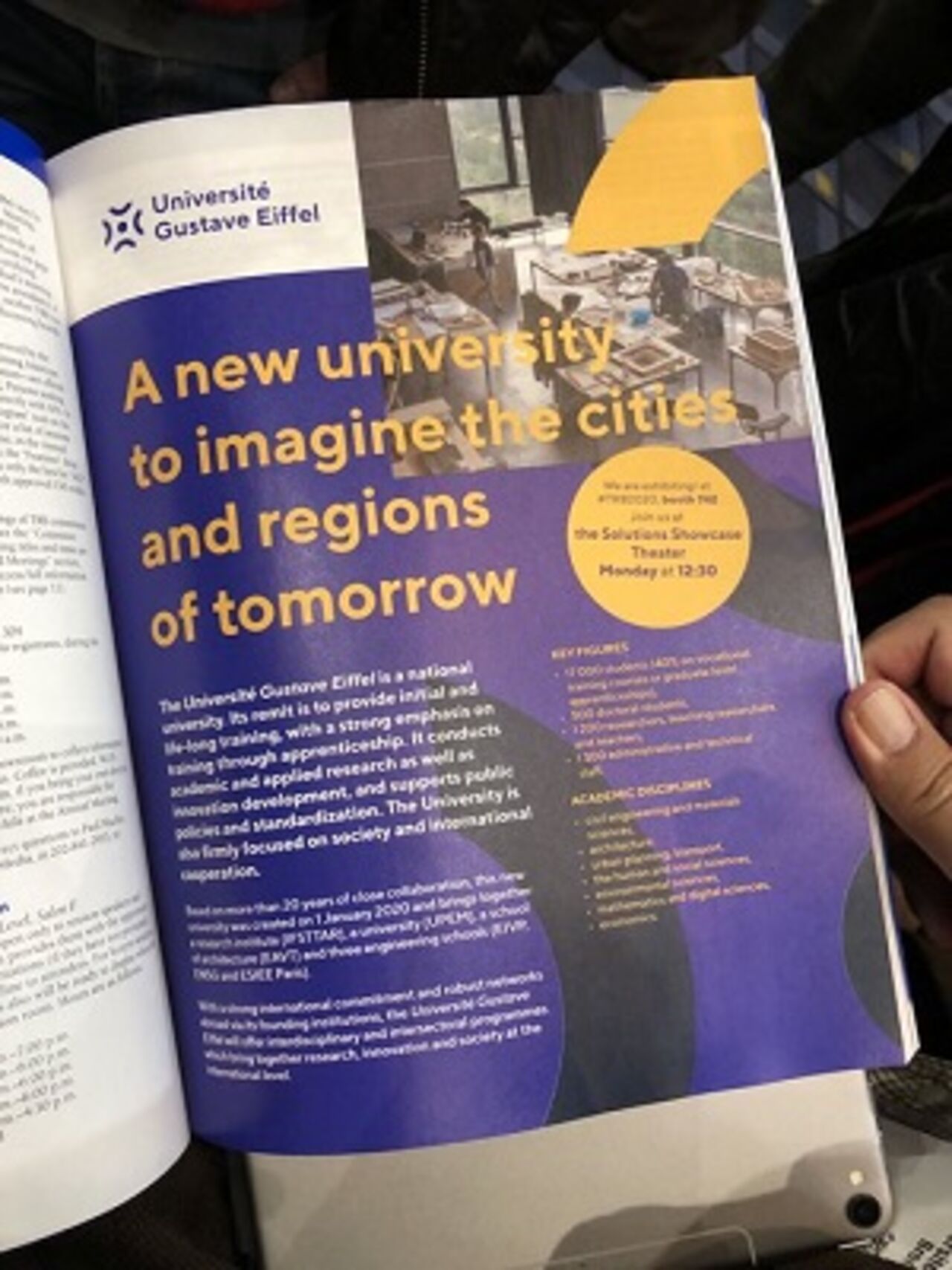
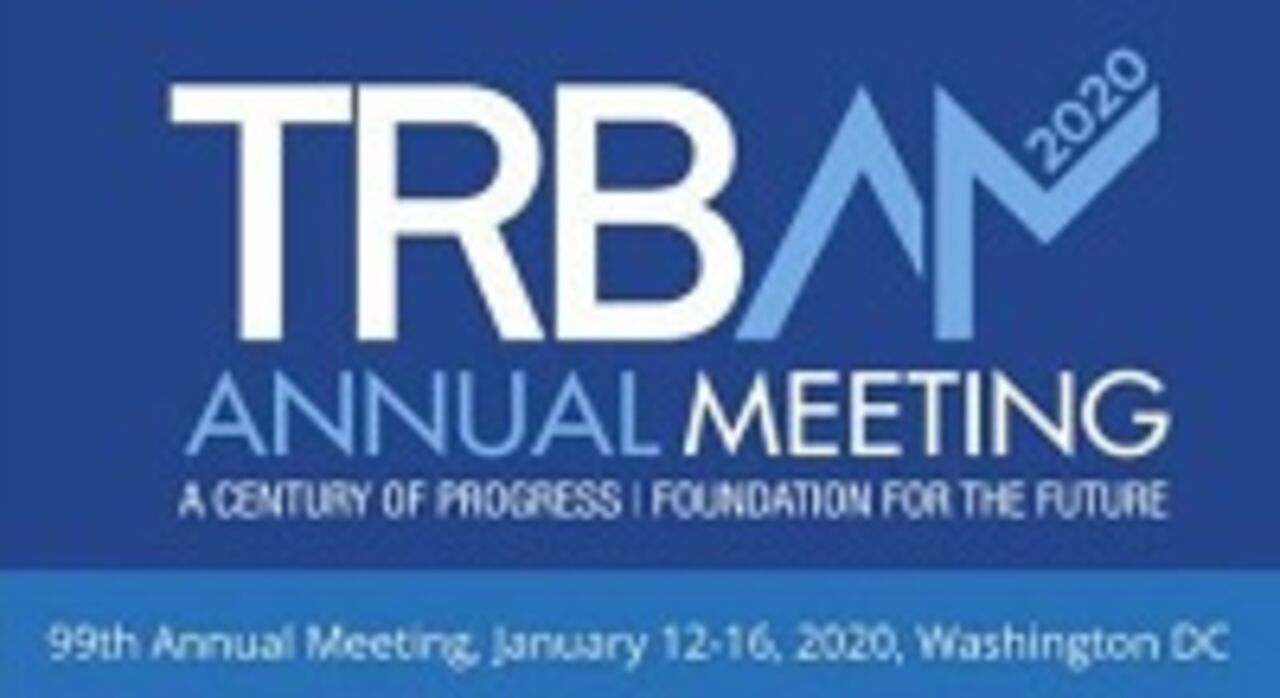
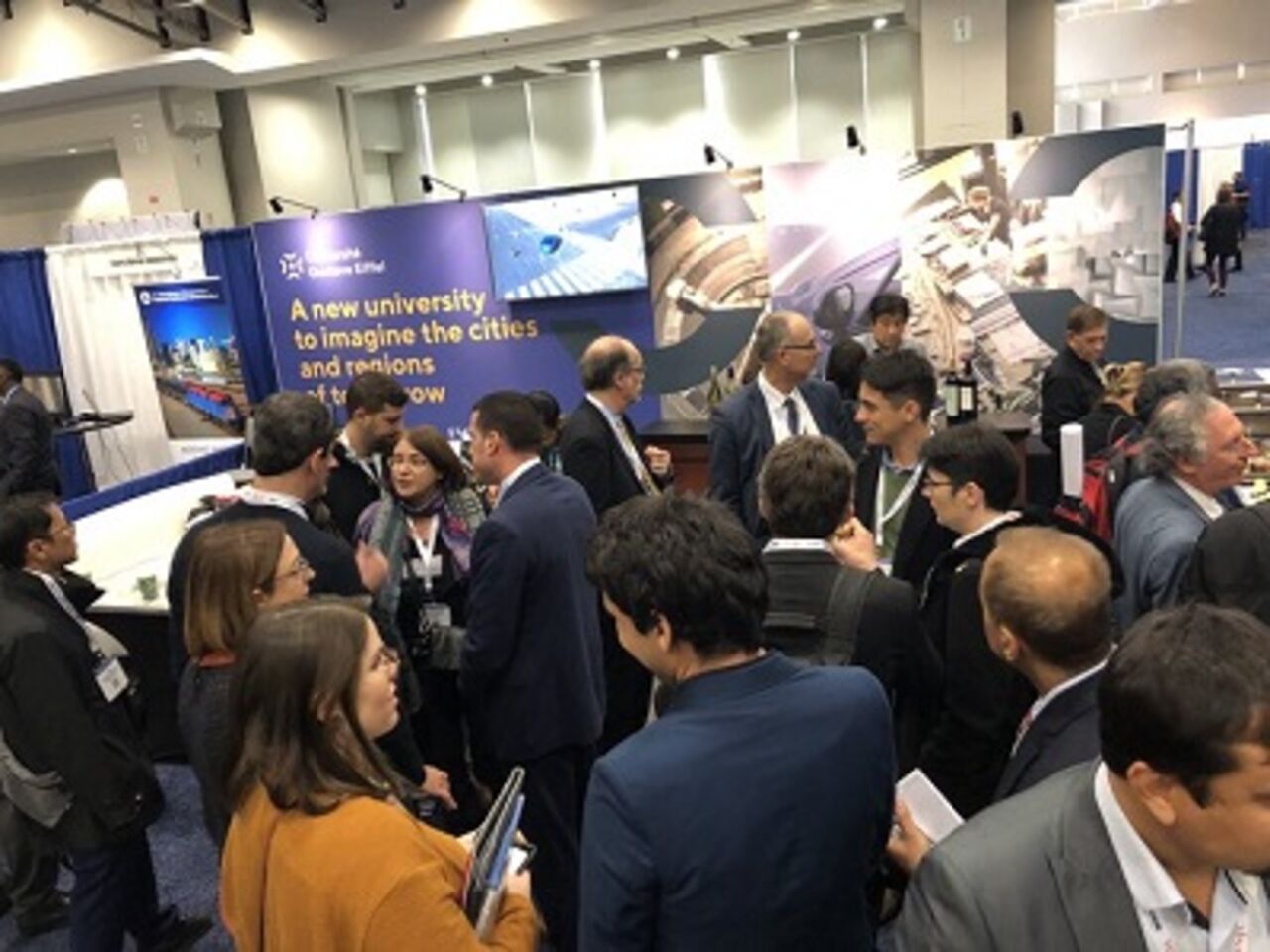
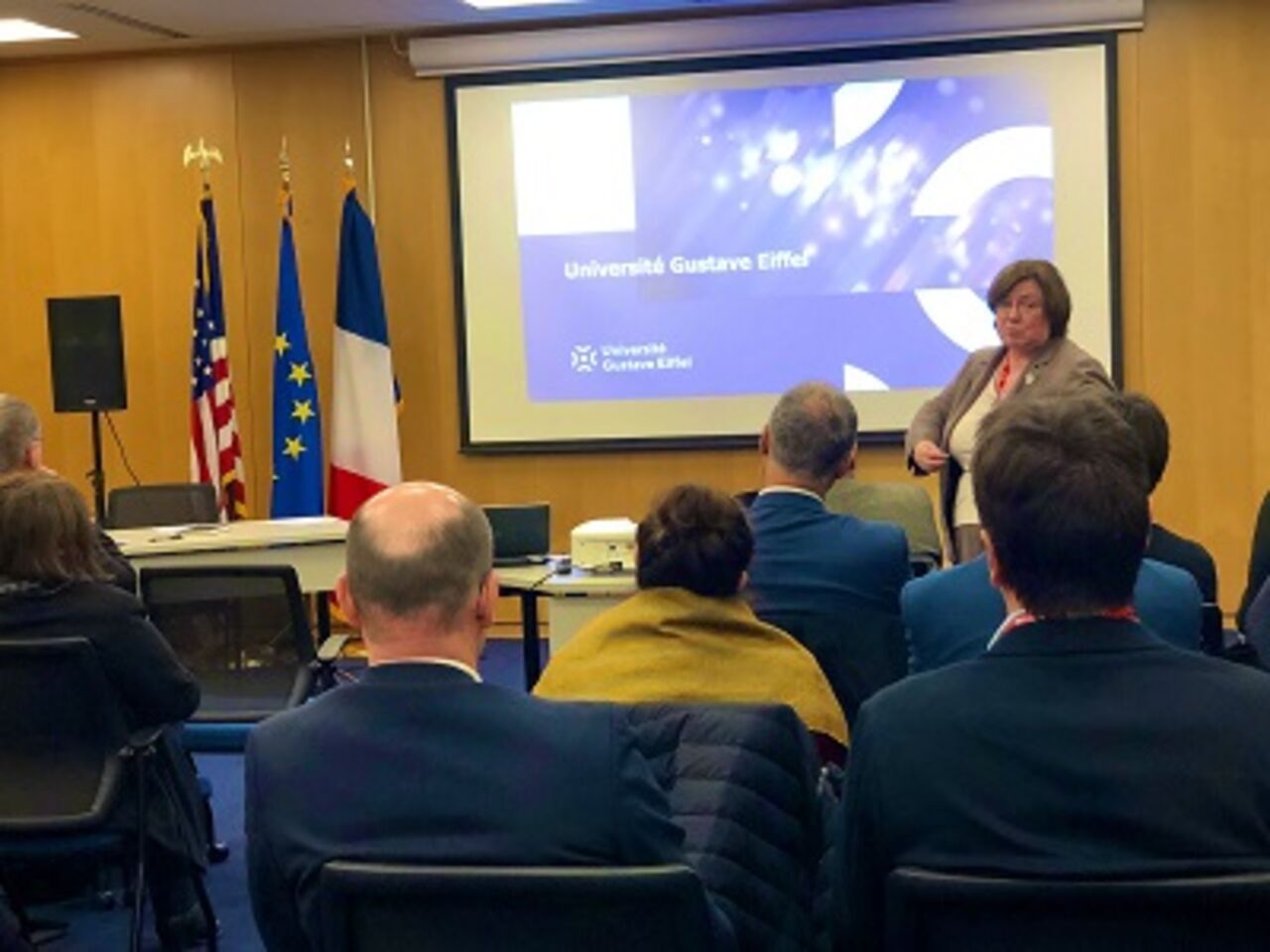
French American Innovation Days
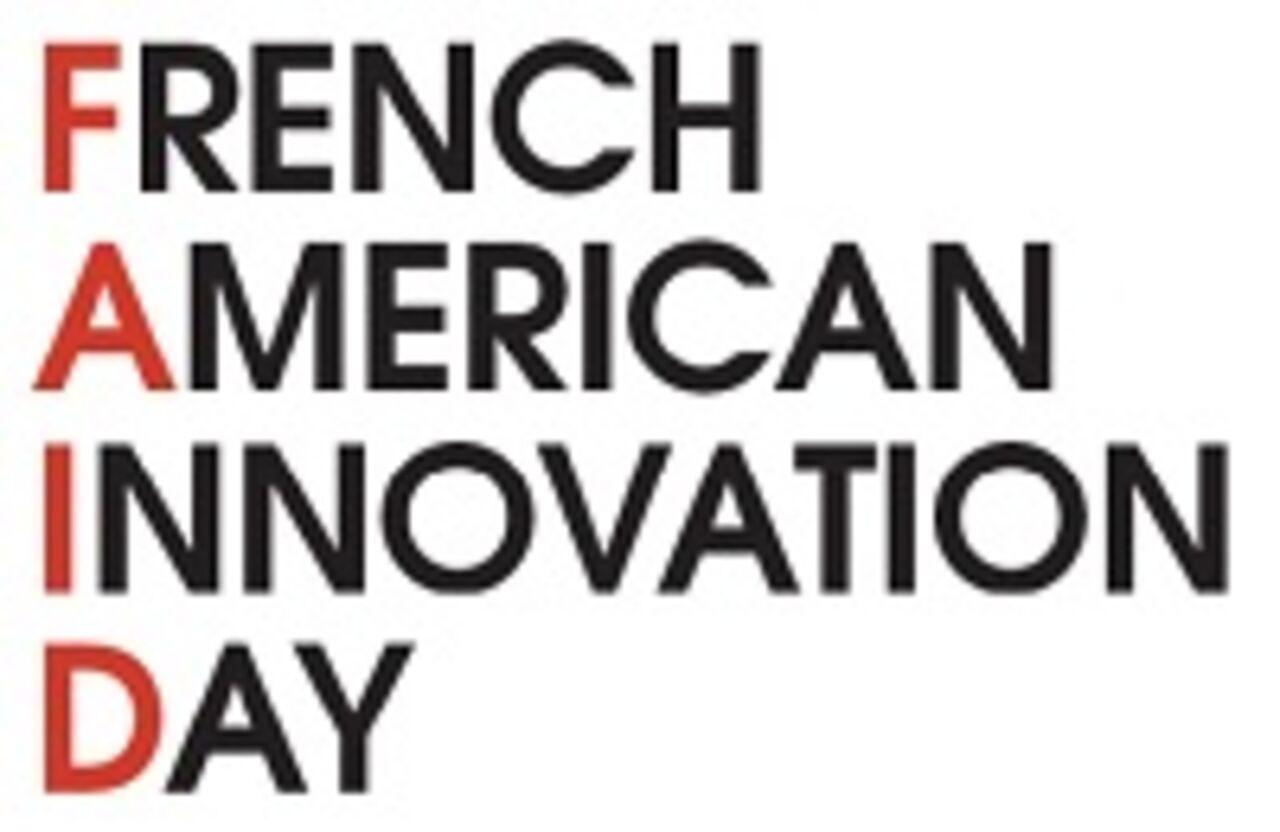
After taking part in the Transportation Research Board in Washington in January 2020, Université Gustave Eiffel was nominated as a key actor to contribute to the French-American Innovation Day (FAID), an event on the theme of "Cities of tomorrow: territories of trust", organised by the Office for Science and Technology (SST) at the French Embassy in the United States.
The aim of the event was to bring together actors of the city of tomorrow from every sector to promote initiatives for sustainable, secure and resilient cities and prevent dangers linked to the use of new technologies. It is a real opportunity for Université Gustave Eiffel to:
- Affirm its skills in research and innovation for the city of tomorrow on the international stage.
- Promote its training courses and programmes for hosting international students, PhD students and researchers among American universities.
- Set up a French-American network to promote scientific comparison, the exchange of good practices, co-publications, inter-doctoral collaborations and other opportunities.
Due to the health crisis, it was decided to postpone the FAID event in Washington until a later date and a series of French-American webinars on cities was organised instead to allow the French and American experts to meet each other and identify common topics of interest.
The first webinar, on 23 September 2020, focussed on the project "Re-enchanting the Champs-Elysée” by the architectural firm PCA Stream and MIT City Science Lab, the presentation of Université Gustave Eiffel and the I-SITE FUTURE project. This first event was attended by over 210 participants (45% in France, 45% in the USA and 10% elsewhere). The American audience included actors from academia (MIT, University of Virginia, University of Texas, Harvard University, Portland State University, George Washington University, etc.) and industry (Orange, Pepsi, NAVTECA LLC, Living Systems, Airbus, EDF, Valeo, NTT Data, etc.).
First Virtual Summit of the Jacques Cartier conferences
For the first Virtual Summit of the Jacques Cartier conferences, a colloquium on “Sustainable research and innovation in engineering for health: science with and for society” was co-organised by David Mitton (Université Gustave Eiffel), Françoise Peyrin (INSERM), Catherine Müller (ENSSIB), Lydia Maigne (University of Clermont-Auvergne), Jacques de Guise (ETS Montreal), Mickaël Bégon (University of Montreal), Neila Mezghani (TELUQ University) and Viviane Poupon (Brain Canada Foundation) in partnership with the University of Claude Bernard Lyon 1, the University of Lyon, PRIMES LabEx and the EVASYM International Associated Laboratory (Lyon – Montreal). During the colloquium, five key ideas were highlighted:
- The question of the free flow and sharing of collected data, with the development of massive data collection and its use in the field of science and medical research.
- Scientific data sharing is rapidly increasing, especially in the field of medical innovation, the development of open source software and open access to academic publications.
- The benefits and potential of this free flow of data are considerable: collaboration between researchers across the world, sometimes in real time (such as for Covid-19 research); sharing research results and faster progress in innovation.
- However, free data sharing is not without certain limitations: firstly, there is the question of intellectual property, secondly, the viability of economic models based on free access and, thirdly, the reluctance of certain actors.
- To allow free data access to continue to develop, this openness should be viewed more as an opportunity than as a threat and a stronger and more harmonious international framework should be created, in particular with regard to the standardisation of data collection.
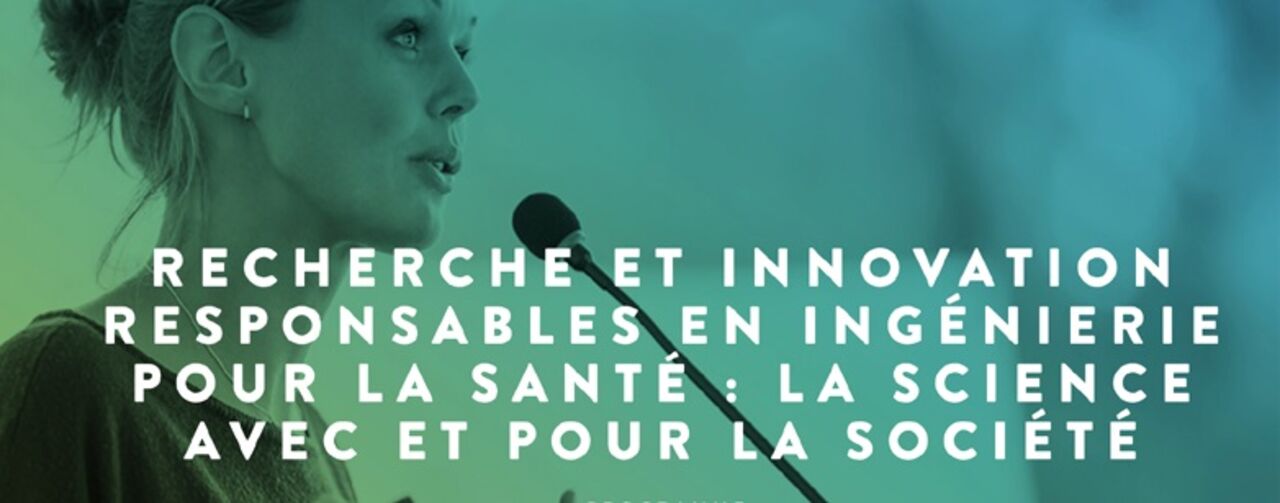
National Information Point "City" (PIN City)

The aim of the National Information Point "City" (PIN City) is to increase joint and coordinated participation in European initiatives, programmes and networks in the urban sphere among French public and private actors, by providing summarised information on European politics, bodies and funding opportunities and promoting cross-domain knowledge and cooperation between different actors. Its aim is also to influence European policies and programmes by contributing to the creation of French positions within European institutions. PIN City is one of the international actions of I-SITE FUTURE, which is coordinated by Université Gustave Eiffel and led in partnership with the ENPC.
A national day on the theme of "Europe and urban R&I: future European programmes for 2021-2027 and citizen participation", organised by Université Gustave Eiffel and PIN City in partnership with European Commission's DG for Research & Innovation and the Ministries for Higher Education, Research and Innovation (MESRI) and for the Ecological Transition and Solidarity (MTES), was held remotely on Wednesday 21 October 2020. Of the 460 participants, around 30% were from academia, 30% from companies and 40% from local government. The event was also notably attended by Mrs Signe Ratso, Deputy Director of the DG Move.
The morning was dedicated to presenting new European programmes and instruments for 2021-2027 and associated priority themes in urban R&I (Horizon Europe, the “100 Climate-neutral cities by 2030” mission, the “Driving Urban Transition” Partnership, URBACT, UIA, LIFE, ESPON). This was followed by a presentation on the national policy for urban research and innovation and national support schemes for the actors involved (Sustainable City France and PIN City).
The afternoon was dedicated to citizen participation in innovative urban projects. The participants took part in one of three parallel workshops on methodologies and feedback from organisations that have tested citizen participation in innovative urban projects: a “sustainable city" workshop, a “business, circular economy, economic sectors” workshop and a "sustainable universities” workshop.
The minutes of the workshops and the presentation materials will be sent to the DG for Research & Innovation and the JPI Urban Europe.

